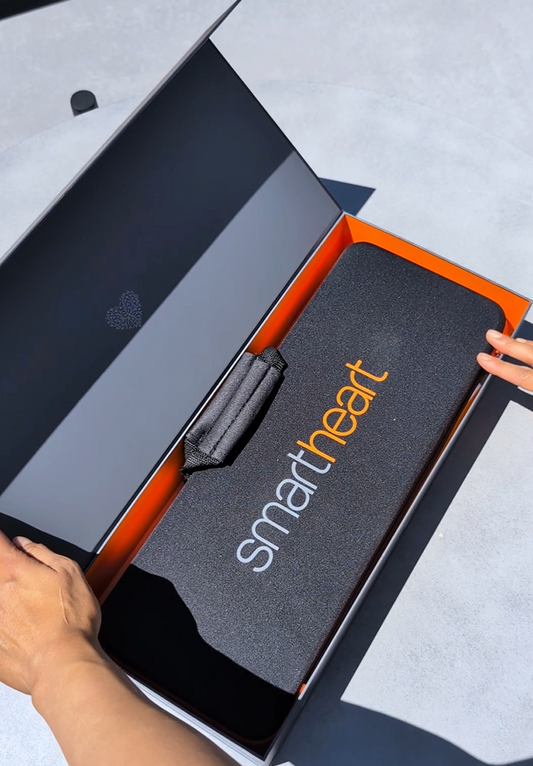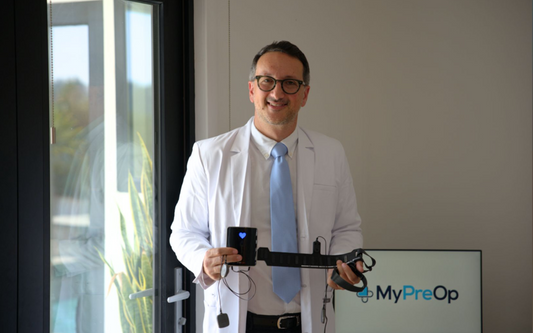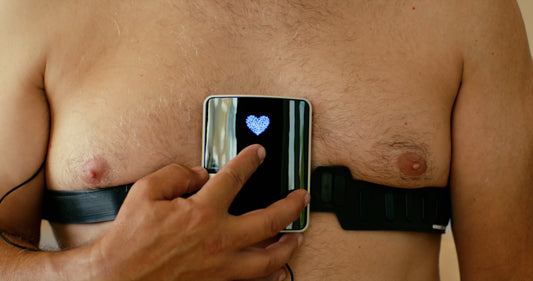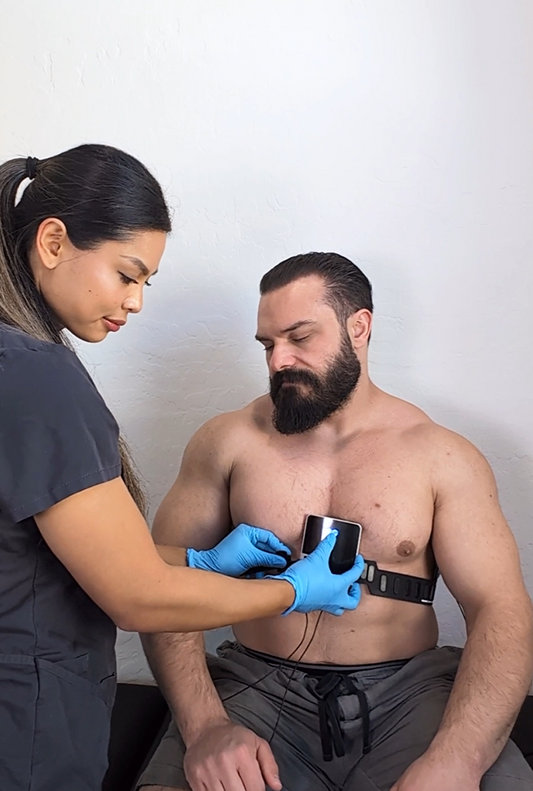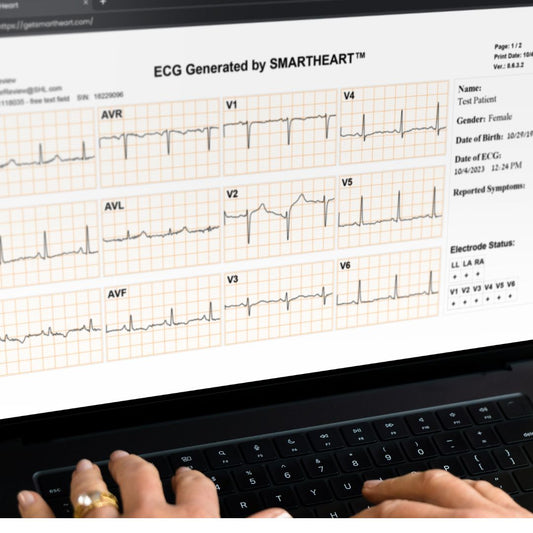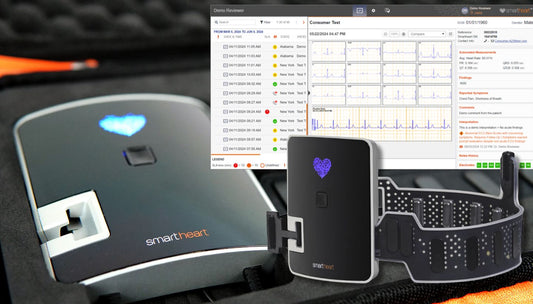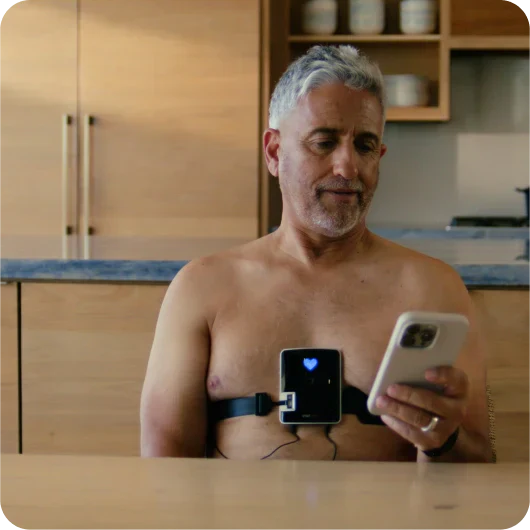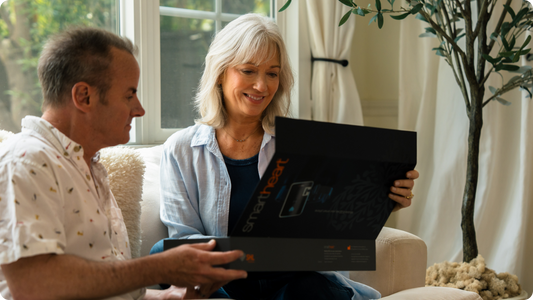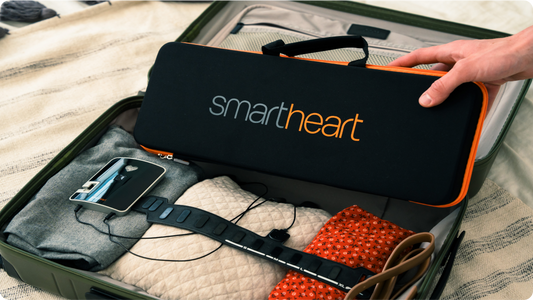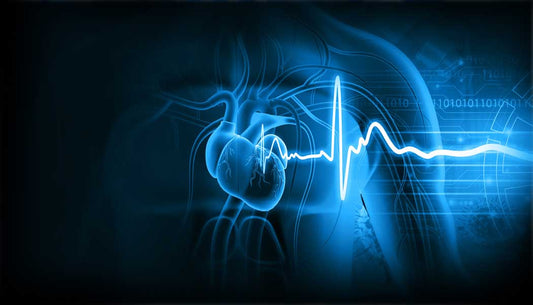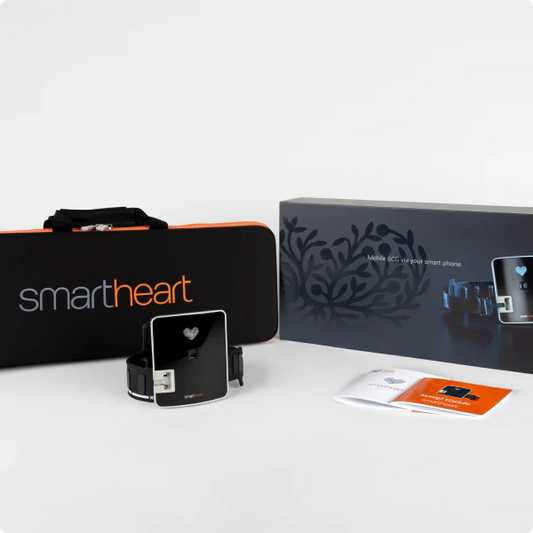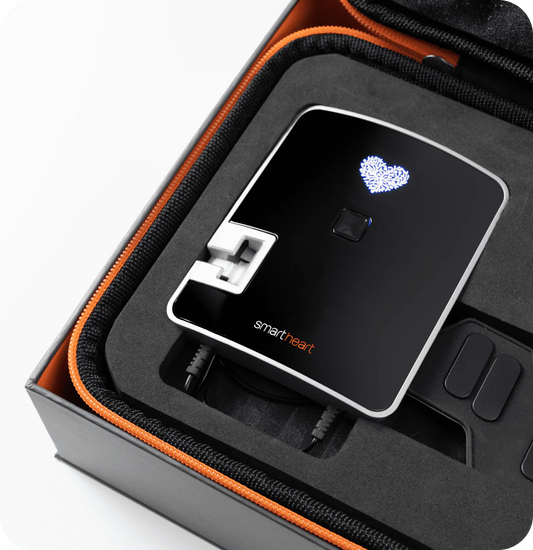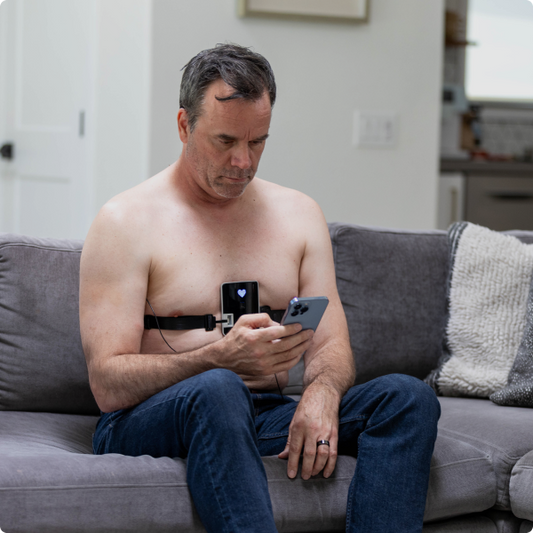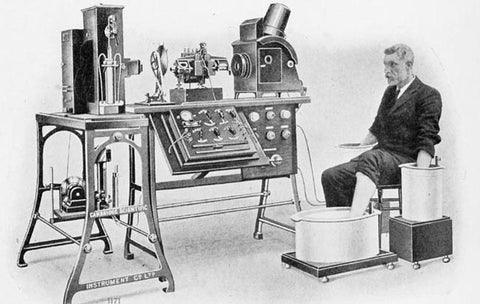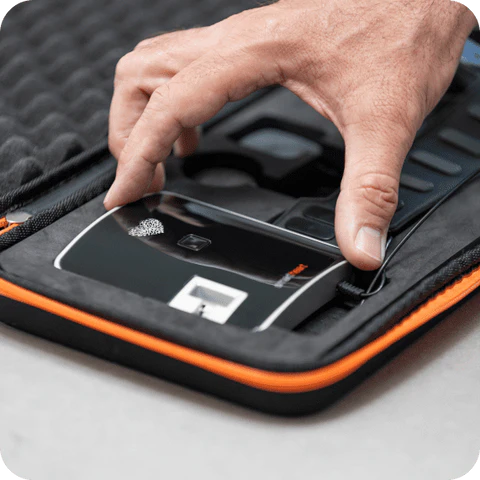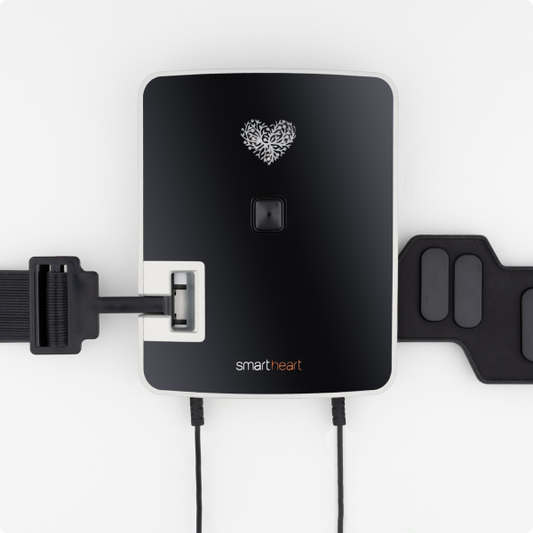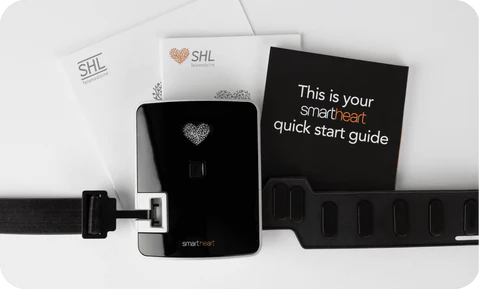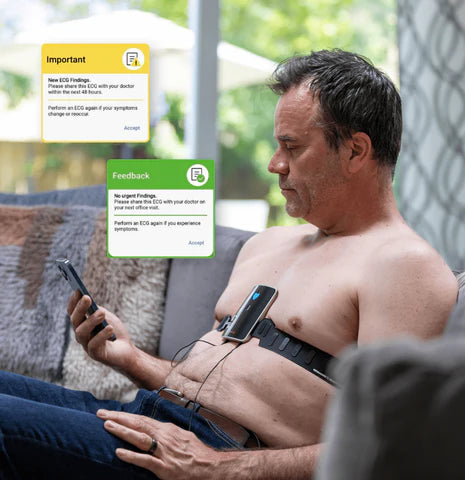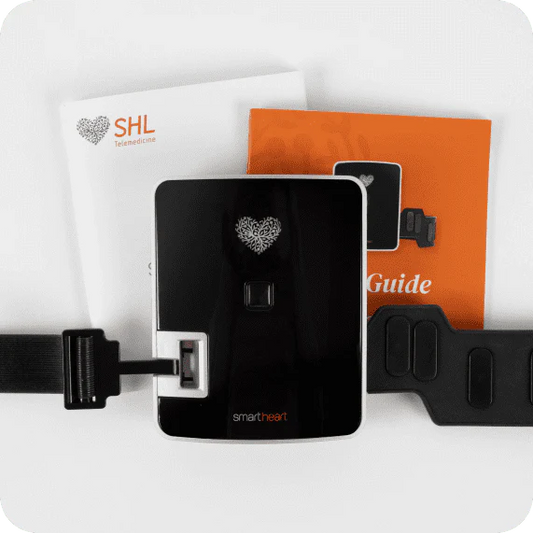Modern day technology makes it easy to stay proactive about heart health. Wearable devices are becoming increasingly more sophisticated, making them a powerful and easily accessible tool for monitoring the health of people with heart disease or who have a family history of heart attacks or other heart related issues.
Almost one in three Americans uses a wearable device. Yet, only 38% of heart disease patients use them regularly.
Wearable ECG devices provide valuable insights into heart rate and rhythm problems. They also show the potential risks of heart issues, including conditions like heart attacks and atrial fibrillation.
Understanding ECG Monitoring
Electrocardiograms, known as ECGs, are crucial to understanding one’s heart health. This gold standard test, used in hospitals and by cardiologists worldwide, gives healthcare professionals valuable insights into our hearts.
It does so by measuring its electrical activity. With each heartbeat, an electrical impulse (or wave) travels through the heart. This wave causes the muscles to squeeze and pump blood from the heart.
Despite its importance, an ECG is a simple and quick test to check the heart. During a traditional 12-lead resting ECG, you lie on an exam table while the technician attaches small sensors to your chest. These sensors record the heart's electrical pattern. A physician will then review waveforms, take measurements, and determine patterns that signal normal or abnormal signals to make a diagnosis.
Our nerves and heart muscle cells communicate using electrical and chemical signals. These signals also control our heartbeat. An ECG shows how fast the heart beats, its rhythm, and the timing of electrical impulses moving through the heart.
Bradycardia and tachycardia are both types of irregular heart rates. They can cause dizziness, lightheadedness, fatigue, shortness of breath, chest pain, and fainting.
Changes in an ECG can be a sign of heart-related health conditions. ECGs can detect irregular heart patterns even in people without other heart attack risk factors. ECG data in addition to medical history and family history will help a physician make critical assessments about heart health. This underlines the importance of this test and why you should consider using a home ECG device.
If you have a history of heart problems or are worried about your health, you might find great value in using an ECG monitor at home. This is especially important if you have had a heart attack before or if heart issues run in your family. An at-home ECG monitor can help you keep track of your heart rhythm and structure. Detecting ECG changes can help you and your physician identify issues early on and prevent progression. It is a valuable tool for monitoring your heart health and staying proactive about your well-being.
Understanding Home ECG Monitoring
Home ECG monitoring using portable devices is becoming very common across the US. These devices can help you record your heart's electrical activity over time. They are small and designed to be user-friendly, enabling users to take ECG readings without frequent doctor’s office visits.
Benefits of Home ECG Monitoring
- Convenience: Home ECG monitoring allows people to check their heart rhythms whenever they want. No appointments or frequent trips to the doctor’s office.
- Early Detection: Regularly monitoring your heart at home can help find irregular heartbeats early. This can be important in stopping serious heart problems like heart attacks or strokes from happening.
- Empowerment: Home ECG monitoring puts the power in your hands, allowing you to manage your heart health actively. This can lead to better outcomes and a better quality of life.
The Importance of Home ECG Monitoring
Since the ECG only records for a few seconds, it will only tell what's going on with the heart rhythm at that moment. That's why other types of ECGs can be helpful.
Detecting heart conditions early is essential for managing them effectively. Portable ECG monitors are essential for this. By regularly monitoring the heart's electrical activity, you can help detect subtle abnormalities. These may show underlying heart issues.
Home monitoring provides ongoing information about heart health, helping individuals identify potential issues. Healthcare facilities only use traditional diagnostic methods during occasional visits. So, they may not catch irregularities promptly.
With regular monitoring, people can act quickly to lower their chances of developing chronic heart problems. Home monitors help detect problems early. They let people focus on their heart health and take proactive steps to prevent heart issues.
People with heart issues or a family history of heart disease may also feel stressed about their heart health. Having a home ECG monitor can offer invaluable peace of mind in such circumstances. Performing on-demand home heart checks provides reassurance and a sense of control over your health.
Home ECG monitoring is a great tool for caregivers and family members of individuals with heart conditions. It provides peace of mind as they can closely watch their loved one's cardiovascular health. This monitoring helps in early detection and prompt intervention. They are ultimately improving the well-being of individuals and their families.
Who Can Benefit from Home ECG Monitoring?
Portable ECG devices are versatile tools. They can help many groups by providing easy and proactive heart care. Specific groups can take advantage of regular home ECG monitoring.
Individuals with High Risk Factors
About half of all Americans have at least 1 of 3 key risk factors for heart disease: high blood pressure, high cholesterol, and smoking. Various risk factors make certain demographic groups more susceptible to heart conditions. Regular home ECG monitoring can be particularly beneficial for:
- Older adults who are more prone to heart-related issues
- Individuals with a family health history of heart disease
- Those with a sedentary lifestyle and poor diet
- Individuals with high blood pressure, high cholesterol, or triglycerides
- People struggling with obesity, diabetes, stress, or illegal drug use
Home ECG monitoring is key in post-op care. It is vital for people who have had heart surgery. Here's how it can aid in their recovery:
- Early Detection of Complications: Home monitoring makes it easier to detect them early. Complications may need medical attention. This includes arrhythmias or abnormal heart rhythms.
- Tracking Recovery Progress: A home monitoring device makes tracking treatment and rehab progress easier.
- Remote Health Monitoring: Patients can easily share ECG readings with their provider. This allows for timely intervention and peace of mind. You know your doctor can closely watch your health, even from a distance.
Home ECG monitoring meets the specific needs of all these groups. It helps manage heart health proactively and aids those recovering from heart surgery.
Medical Grade vs. Personal: Choosing the Right Home ECG Monitor
Holter or ambulatory heart monitors are medical-grade at-home monitors you wear for up to 30 days. While wearing them, you must follow many restrictions. Some examples are no smoking, drinking, or exposure to water. Some people can also be allergic or sensitive to the adhesive that keeps the monitor in place.
Some personal ECG monitors are smartwatches, while others are small devices you can carry with you to use when needed. These "smart" technologies can also detect heart rhythms that cause symptoms.
"I like the fact that patients have more autonomy. They are active participants in their care. When I treat patients, it's a collaborative effort. I want you to know what's going on. I want you to understand, " says Dr. Latoya Linton-Frazier, an Indiana Regional Medical Center cardiologist.
The main difference between personal and medical-grade devices is the number of leads. Holter monitors, like the ECG machines at a hospital, have 12 leads. Most wearables on the market have 1, 3, or 6 leads.
"A lead is one of the stickers that they put on during the ECG. Now, each one of those leads looks at a different part of the heart. So when you go into the ER to see if you're having a heart attack, you get a 12-lead electrocardiogram. It gives a circumferential picture of the entire heart and its electrical activity. That electrical activity looks different if you're having a heart attack or ischemia," explains Dr Robert Beto. Dr. Beto is an experienced heart doctor and CEO of HeartNexus.
Technology is improving, and people are using personal ECG devices to track their heart health. These devices can provide important insight into a person's health status. But not all devices are the same.

Choosing the Right Device
When choosing a portable ECG monitor, it's essential to ensure you select the right device for your needs. Here's a checklist of essential features to keep in mind:
- Accuracy: Look for a monitor that gives accurate and reliable readings of your heart's electrical activity. Some devices are not FDA-approved. These devices do not work as well as others, such as the 12-lead ECG, for monitoring heart rhythms.
"When I think of an ECG test, I think of the twelve leads looking at all areas of the heart. That's what we want to see as physicians. We don't want to miss an area that may be experiencing obstructed blood flow. So 1, 3 or 6-lead devices are great for if you're having heart palpitations or an abnormal heart rhythm. However, when you start to talk about blocked arteries, you really need to see all areas of the heart," explains Dr. Beto.
- Ease of Use: Opt for a user-friendly monitor that is easy to operate. Intuitive design and clear instructions can simplify testing and enhance the user experience.
- Connectivity Options: Consider whether the monitor offers Bluetooth or Wi-Fi. These features enable seamless integration with mobile apps and telemedicine platforms.

Integrating with Telemedicine
Home ECG monitoring can work with telemedicine platforms. It offers remote patient care and monitoring. Here's how it can enhance telemedicine consultations:
- Timely Care: Patients can share their heart readings with providers during telemedicine appointments. This allows for immediate assessment of heart rhythm and detection of any issues.
- Personalization: Home ECG monitoring helps providers track patients' progress. They can use it to adjust treatment plans between in-person visits.
- Accessibility: Patients can get expert heart care at home. This is true no matter where they live or if they have mobility issues.
Take Charge of Your Heart Health Today
Investing in home ECG monitoring is a proactive step toward prioritizing your heart health and well-being. Portable ECG devices make it easy for people to check their heart rhythms, provide early heart attack detection and make healthier choices.
Home ECG monitoring helps you control your heart health. It tracks existing conditions and prevents future issues. It's a personalized way to manage your cardiac wellness. Start monitoring your heart health from the comfort of your home and embrace a future of proactive cardiac care.
A 12-lead ECG, like SmartHeart, is the best test for diagnosing heart attacks and irregular heart rhythms. Our US board-certified cardiologists, including Dr. Beto and Dr. Frazier, are available 24/7 for ECG interpretations and telemedicine consultations. This ensures accurate and detailed readings. They give you and your healthcare provider valuable insights into your heart's condition.




